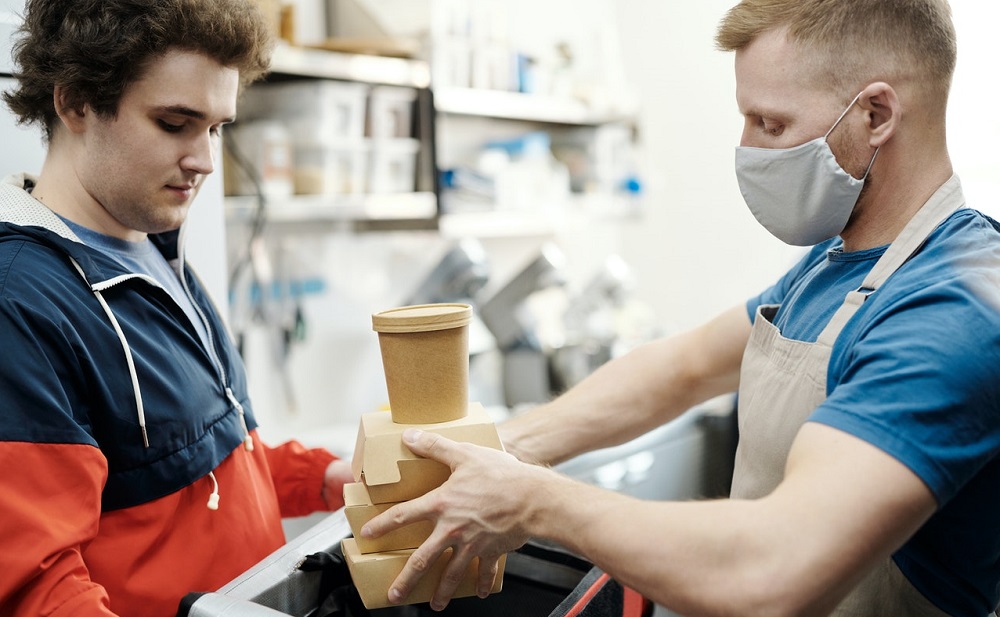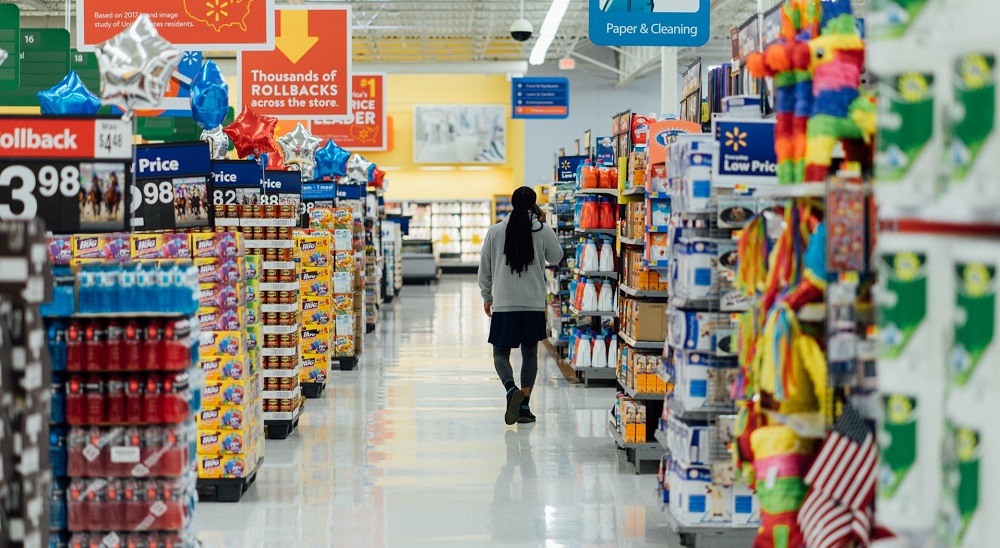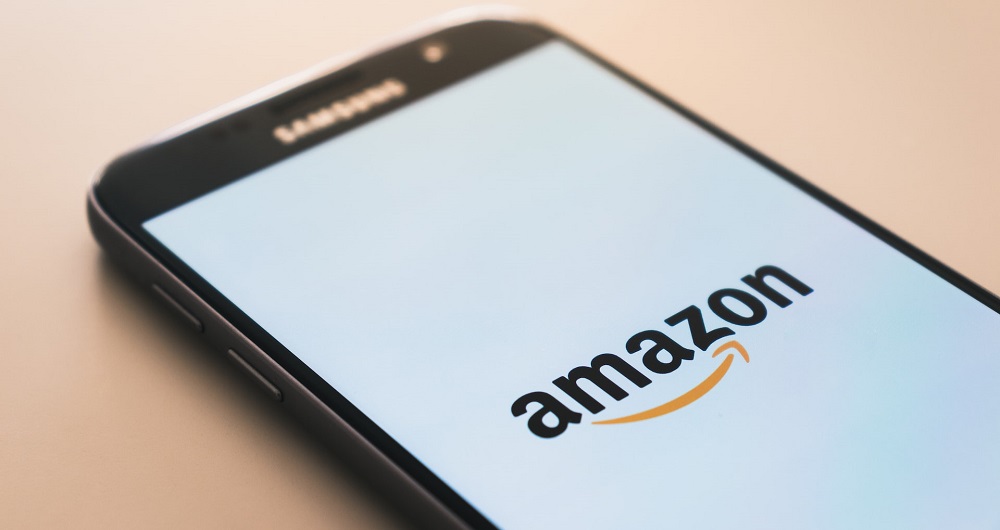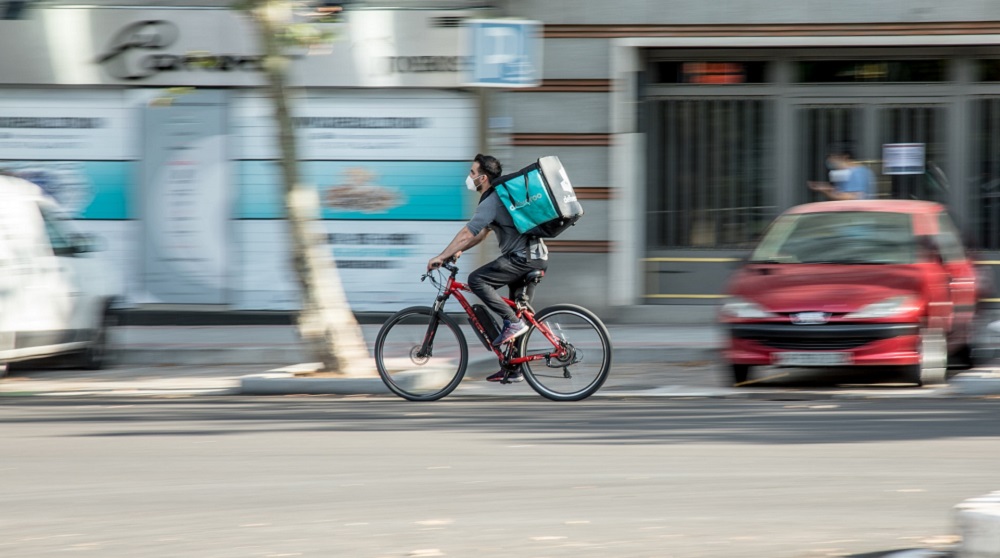Consumer transaction data reveals that sales for the home improvement industry skyrocketed early in the pandemic as many consumers stayed at home during shelter-in-place orders. A year and a half later, home improvement sales are still higher than pre-pandemic levels, but sales growth at a select group of major hardware store chains did not maintain the same momentum in 2021 as it did in 2020. At the same time, the average transaction value for home improvement companies has increased year-over-year.
This back-to-school season marks the first time that many students across the U.S. are returning to the classroom since schools transitioned to remote instruction in March 2020 amid the coronavirus pandemic. Interestingly, August 2021 consumer sales for office supply company Office Depot (which includes stores under the Office Depot and OfficeMax brands) were lower than sales for August 2020 and August 2019. Consumer transaction data also shows that Office Depot’s August 2021 sales patterns varied by metro area
The return of the pumpkin spice latte—or “PSL” to its loyal fans—is heralded as the unofficial start of fall. Starbucks and Dunkin are two of the largest coffee chains known for selling this seasonal treat. But does the return of the PSL affect sales at these two companies? Consumer transaction data found no major changes in week-over-week sales when Dunkin introduced its fall 2021 beverages, while Starbucks experienced a modest sales bump the same week that PSLs returned to its menu.
Warby Parker—a Digitally Native Vertical Brand (DNVB) specializing in eyewear—has visions of an IPO. Warby Parker is known for its at-home try-ons and its “buy a pair, give a pair” initiative. The DTC company started in ecommerce and later became omnichannel, with a network of stores throughout the U.S. Consumer transaction data shows how sales have grown at Warby Parker during the pandemic, as well as how the company stacks up against other eyewear competitors.
When many Americans sheltered in their homes early in the coronavirus pandemic, meal delivery sales reached new heights. Our data reveals that in August 2021, sales for meal delivery services grew 15 percent year-over-year, collectively. The ongoing pandemic may also be driving more Americans to make their first meal delivery purchase. In August 2021, 50 percent of U.S. consumers had ever ordered from one of the services in our analysis, up from 43 percent a year ago.
In June 2021, global ecommerce company Etsy announced that it would acquire Depop, a UK-based resale marketplace that has also been gaining traction in the US. Consumer transaction data shows that during the pandemic, a growing percentage of U.S. customers at Depop have also been making purchases at Etsy. Additionally, cross-shoppers between the two companies are more likely to buy more frequently at each company compared to customers who only shop at one of the companies.
Allbirds, the San Francisco-based startup known for its sustainable footwear collections, recently filed for an IPO. Initially launched as a DTC sneaker company, Allbirds has been growing its retail footprint over the last few years while also expanding into apparel categories. As Allbirds prepares for its public debut, consumer spending data reveals how returning customers and holiday sales have contributed to sales growth, as well as how the company’s retail locations in select metro areas have fared during the pandemic.
Some cruise lines, including Norwegian and Royal Caribbean, have started setting sail again after being on hiatus throughout the pandemic. The cruise industry is one of the many areas within the travel sector—such as airlines, rental cars, and hospitality—that have been rebounding over the summer. Royal Caribbean and Viking River Cruises in particular have captured market share in the two years from July 2019 to July 2021. However, despite a recent uptick, sales for the cruise line industry remain far below pre-pandemic levels.
As retailers see increased traffic from shoppers returning to brick-and-mortar stores, department stores such as Macy’s are experiencing significant sales growth. In fact, Macy’s Inc.’s (NYSE: M) most recent earnings report outperformed investors’ expectations. Consumer transaction data identified growth in retail channel sales and spend migration from competitors as factors potentially driving Macy’s earnings surprise.
When many Americans sheltered in their homes early in the coronavirus pandemic, meal delivery sales reached new heights. Our data reveals that in July 2021, sales for meal delivery services grew 16 percent year-over-year, collectively. The ongoing pandemic may also be driving more Americans to make their first meal delivery purchase. In July 2021, 49 percent of U.S. consumers had ever ordered from one of the services in our analysis, up from 42 percent a year ago.
When U.S. cities and states faced shelter-in-place orders to limit the spread of the coronavirus, Americans’ reduced mobility resulted in plummeting sales at rideshare companies. With the exception of a late 2020 dip, sales have been gradually recovering since April 2020. Uber sales were up 150 percent year-over-year and Lyft sales were up 127 percent year-over-year in July 2021.
When shelter-in-place orders went into effect, many coffee drinkers turned to DTC coffee subscription companies for their daily cup of joe. Consumer transaction data reveals how three select coffee brands—Blue Bottle Coffee, Peet’s Coffee, and Philz Coffee—whose offerings include retail cafes, coffee bean delivery, and coffee subscriptions experienced a sizable shift to online sales, as well as how some smaller coffee subscription box companies saw strong sales growth during the pandemic.
After a sharp decline early in the pandemic, the DTC clothing rental market is experiencing a resurgence. Many consumers are signing up for DTC clothing rental subscriptions as they return to the office and begin attending in-person events such as weddings again. As a Rent the Runway IPO approaches, consumer transaction data reveals how customer counts are rebounding for top clothing rental companies.
Throughout the COVID-19 pandemic, consumers turned to streaming services as movie theaters, sports stadiums, concert halls, and other live event venues shut down. The gradual reopenings of brick and mortar businesses has boosted movie theater attendance and sales as the summer blockbuster season gets underway. Additionally, some companies such as AMC Theatres have seen increasing average transaction values as well as a growing share of sales taking place online.
As travel-related sectors are bouncing back from the COVID-19 pandemic, rental cars have been in short supply. Consumer transaction data reveals that June 2021 sales for top rental car parent companies like Avis Budget Group and The Hertz Corporation exceeded sales from the same month in 2019 and 2020. At the same time, peer-to-peer car rental companies like Turo continue to capture market share from competitors. Similar to a recent trend in the rideshare industry, average transaction values for rental car companies rose throughout the spring and early summer of 2021.
As the travel industry recovers and in-person events—such as Broadway shows, sports games, and live concerts—restart in some parts of the U.S, the major event ticketing platforms have seen rising sales. During the height of shelter-in-place orders in April 2020, overall sales among a select set of ticket marketplaces (Ticketmaster, Vivid Seats, StubHub, and SeatGeek) declined 97 percent year-over-year. Ticket sales remained low through early 2021, as many event venues remained closed. However, since March 2021 the industry has experienced an uptick in sales.
Grocery delivery sales skyrocketed early in the pandemic, as shelter-in-place orders went into effect and many consumers avoided going into brick-and-mortar grocery stores. Between March 2020 and April 2020, total sales among a select set of grocery delivery competitors–Instacart, Walmart Grocery, Shipt, Peapod, and FreshDirect–grew 62 percent. While demand for grocery delivery still exceeds pre-pandemic levels, sales have been gradually declining in 2021.
For the past few years, some superstore retailers have hosted their own sales events to coincide with Amazon Prime Day. In 2021, these companies included Walmart, Target, Best Buy, and Bed Bath & Beyond. Consumer transaction data reveals that despite competing sales events during Prime Day 2021, Amazon sales increased and the company experienced higher week-over-week sales growth than a select set of retailers. Additionally, Amazon captured market share from top retail competitors, especially Walmart and Target.
When many Americans sheltered in their homes early in the coronavirus pandemic, meal delivery sales reached new heights. Our data reveals that in June 2021, sales for meal delivery services grew 20 percent year-over-year, collectively. Shelter-in-place orders may also be driving more Americans to make their first meal delivery purchase. In June 2021, 49 percent of U.S. consumers had ever ordered from one of the services in our analysis, up from 41 percent a year ago.
Among the many supply chain challenges of the pandemic, one such commodity experiencing a shortage is boba—the tapioca pearls that are the main ingredient in bubble tea. A closer look at consumer transaction data for large national chain Kung Fu Tea reflects that demand for bubble tea has been rising during the pandemic, but so far does not indicate that the boba shortage is affecting the company’s sales or customer counts, likely due to the company having warehouses on both the East Coast and West Coast.
























